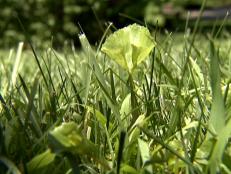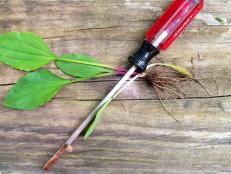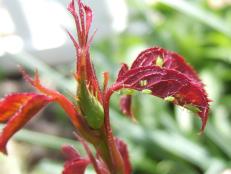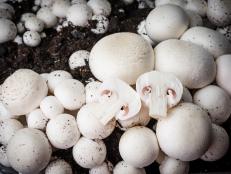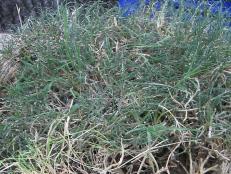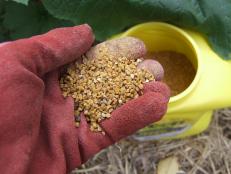Weeding Out Weeds

You can control weeds in the lawn without herbicides of any kind, organic or synthetic, says master gardener Paul James. And you don't have to kill 100 percent of the weeds.
"Some homeowners go bonkers when they find even a single weed in their lawn," he says. "Controlling 100 percent of the weeds in the lawn is not only impossible, but it's unhealthy for the lawn and potentially unhealthy for all those that inhabit the lawn. I truly believe that a small percentage of weeds in the lawn are a good thing because weeds provide valuable food and nesting sites for beneficial insects which are good for the entire landscape." James also suggests that a mix of weeds in the landscape is actually more attractive because it creates a look of a meadow rather than a monoculture of nothing but turf. The weed and lawn mix creates a culture of bio-diversity, and a diverse mix of plantings is far more capable of withstanding attack by pests and diseases than a monoculture.
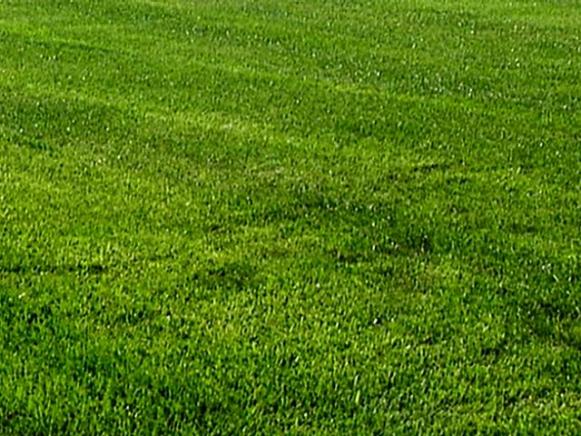
So how do you control weeds in the lawn without resorting to the use of herbicides? James says the surest way is to promote a healthy turf. The first step is to have your soil tested — not just to measure its nutrient value, but to measure its pH, which can be more important. A number of weeds thrive in acidic soils with a pH of 6 or lower. A number of weeds thrive in alkaline soils with a pH of 7.5 or higher. But turf grasses prefer near neutral pH. So, by using alkaline sulfur to lower the pH or agricultural lime to raise it, you can create conditions that are less favorable for weeds, and at the same time you create conditions that are ideal for grass. When your soil pH is ideal, grass roots are able to absorb all the nutrients available in the soil. James recommends fertilizing the lawn on a regular basis, ideally with an all-natural product, and preferably both in the spring and again in the fall while the grass is still green. Doing so will provide the grass with all the nutrients it needs to grow vigorously." A vigorously growing lawn will go a long way toward crowding out weeds.
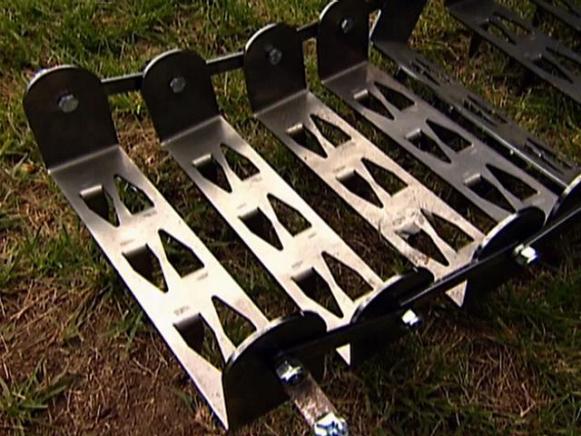
Aeration is another important task, one that should be done at least once every couple of years, perhaps every year if your soil tends to compact easily. Aerating opens up the soil to allow water and nutrients to get deep in the root zone of grasses and, in the process, also eliminate thatch.
When and how often you cut the lawn can reduce the number of weeds in the lawn dramatically, as well as help you achieve the goal of promoting a healthy turf, especially if you use a mulching mower. Mulching mowers deposit a thin layer of grass clippings, essentially a form of mulch on the soil surface. In addition to preventing weed seeds from germinating, grass clippings contained in the mulch provide all sorts of nutrients which supplement those provided by conventional fertilizers.

Mowing higher than usual can also cut down on the amount of light that can reach the soil surface, and that can go a long way toward preventing weeds from germinating. Altering the height of the mower blade may also result in healthier turf because a taller leaf blade means a deeper root system. By mowing at the right time, you often do more to prevent weeds from germinating than anything else. A great many weeds, both annual and perennial, spread first by flowering then by setting seeds which drop to the ground or are blown by the wind or eaten and deposited by birds elsewhere in your lawn. So if you mow the weeds before they flower or perhaps while they're in flower, they won't have a chance to set seed. Between mowing, you can simply stroll through the lawn and pluck the flowers.
But even if you fertilize, aerate and mow properly, you're still going to have some weeds. So what do you do?
Hint: it involves a workout. The most common lawn weeds in the U.S. — henbit and chickweed — are annual weeds with relatively shallow root systems. As a result, both are relatively easy to pull out of the ground with a gentle tug. James recommends pulling weeds before they flower, because even though henbit and chickweed are annuals, they reseed so prolifically that they can become a perennial problem. In the case of weeds with tap roots such as dandelions and Queen Anne's lace, it's best to dig up the entire root systems. If you leave behind even the tiniest piece of tap root, you'll soon have more of the same weed. And it's much easier to do this after you've watered or shortly after it has rained because the roots come up much easier in moist soil.
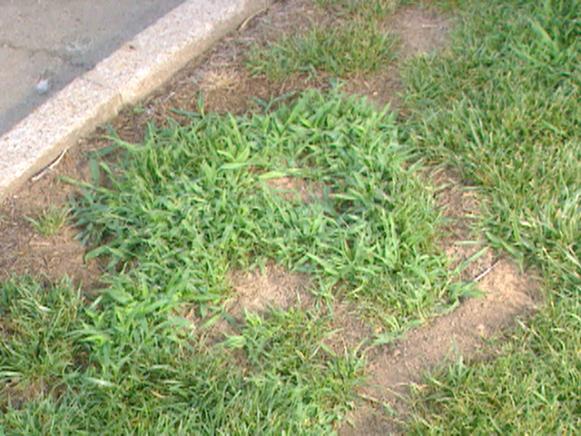
Grassy weeds —in particular, crabgrass — are more of a challenge, but they too can be kept under control. However, it's best to dig them out with a trowel or other garden tool. And of course there are those really persistent weeds such as wild onions, violets and strawberries. "They too must be dug out, but if you're a bit more persistent than they are, you can at least keep their spread in check," says James.
There's one weed that James recommends leaving alone — white Dutch clover. "Trifolium repens is good for the lawn; it's a legume, which means it fixes nitrogen from the air and adds it to the soil, and also it's a plant that earthworms adore being near."






